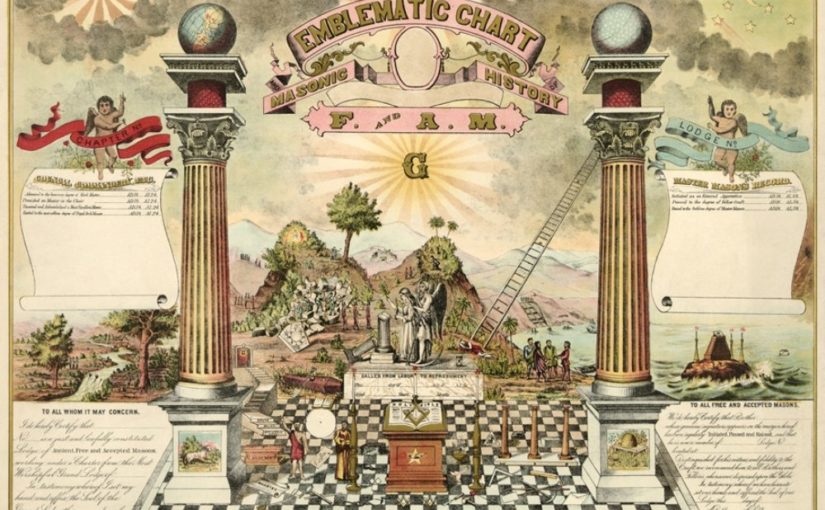One of the first things that we are taught in Freemasonry is that it is “a peculiar system of morality veiled in allegory and illustrated by symbols”. One can therefore only understand the real meaning of Freemasonry by investigating its allegorical meaning.
A most obvious example of an allegory in Freemasonry is the question of “Age” made to the candidate by the Worshipful Master with the following words: “Are you a free man of the full age of twenty-one?”. To which the candidate is prompted by the Junior Deacon to reply: “I am”.
In Hebrew language “I am” translates “Eheieh” , which according to the numeration of the Hebrew letters of the alphabet , adds up to twenty one.
Such method of interpretation can be applied not just to the Masonic Rituals – Craft , Royal Arch, MM etc – but also to the Sacred Scriptures. It is a method that computes the numerical value of words based on their constituent letter. This method is called Gematria or Geometria and is used in the Kabbalah.
WHAT IS THE KABBALAH
The Kabbalah is described as an esoteric theosophy based on the Hebrew Scriptures and the mysterious doctrine even influenced Freemasonry in the XVII century.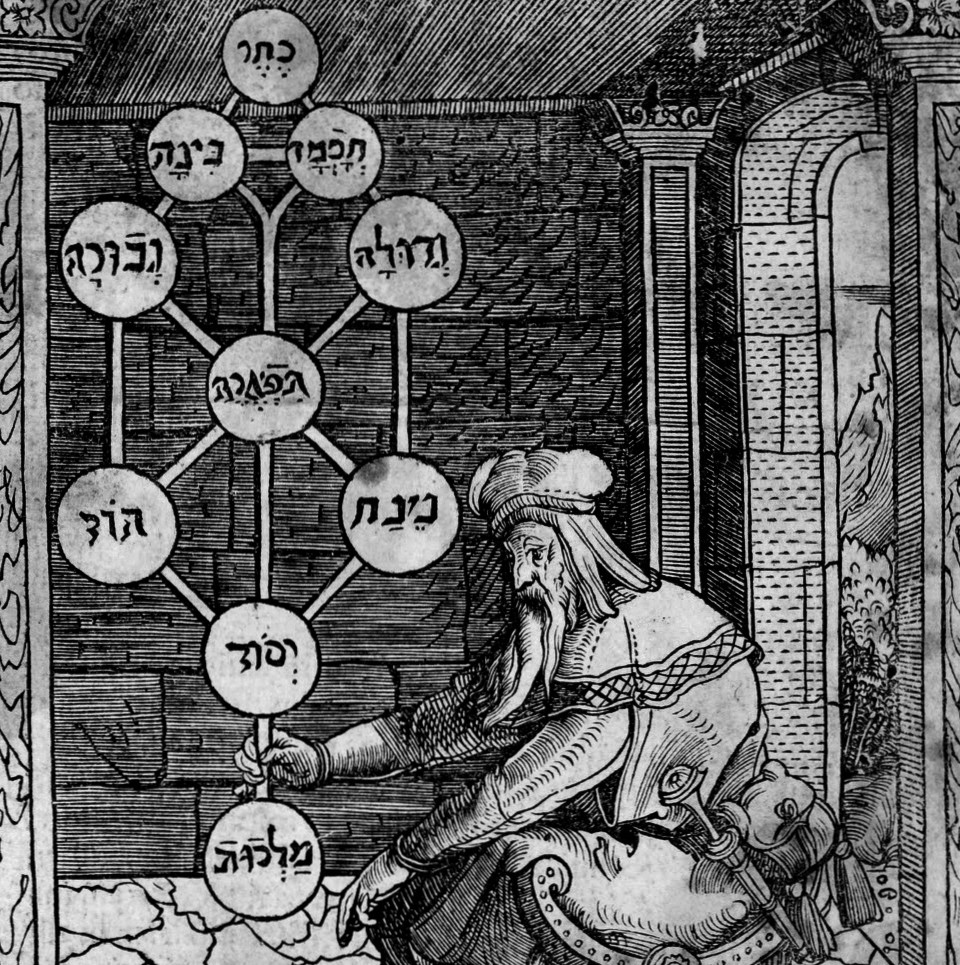
In Hebrew the meaning of the word Kabbalah is “to receive”. There is a curious myth that claims God himself taught this doctrine to a selected company of angels who , after the fall of man, communicated it to men so that they could learn how to return to the original state of happiness and communion with God. The great prophets Noah, Abraham and Moses received it and passed it on to their successors, among who was of course King Salomon.
The contents of the Kabbalah are believed to have derived from a mixture of ancient superior cultures like the Greek, the Egyptian and the Oriental. Even the Christianity adopted it , initially believing that it was Hebrew rather than Pagan.
The Kabbalah has three distinct facets. It can be :
- “theoretical” when it teaches man about God;
- “enigmatical” when it is based on the interpretation of the arrangements of words and letters in the Bible ;
- “practical” when it professes to cure disease in man by interpreting the arrangement of words and letters.
For the Kabala every word can be reduced to a numerical value and be explained by means of another word of the same value.
A LOOK AT GEMATRIA
Gematria , or Geometria in Greek language, is a kabbalistic practice , essentially it is the Hebrew science of Numerology used mainly as a method for interpreting biblical texts. In Gematria each Hebrew letter represents a number.
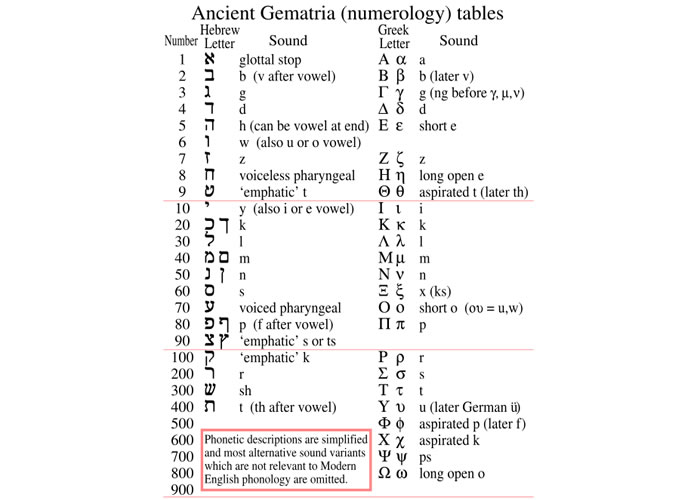 Through those numbers one can calculate the numerical value of a word and by computing that value with one or more other words, a connection is established that can prove larger conceptual conclusions. One example of Gematria can be found in the interpretation of Genesis 14:14.
Through those numbers one can calculate the numerical value of a word and by computing that value with one or more other words, a connection is established that can prove larger conceptual conclusions. One example of Gematria can be found in the interpretation of Genesis 14:14.
The verse mentions that to defeat the armies that had recently attacked his brother Lot, Abram (later in Genesis, God changed Abram’s name to Abraham), sent to fight the 318 men that made up his household. The numerical equivalent of Abram’s trusted household steward ‘s name “Eliezer” is 318; therefore, the text can also suggest that it was not an army of 318 that accompanied Abram, but only Eliezer. To prove that there can be more than one interpretation revealed by Gematria and the Kabala by the computation of words-values, let us consider the numerical value of the word “siach” which in Hebrew means “speaking” or “conversing”. It matches that of “Eliezer” and so it is now possible to argue that the interpretation of the Genesis 14:14 may also be that Abram defeated his enemies on his own just by speaking to them in the name of God !
In the Hebrew language the word “God” translates “Elohim” and Gematria returns for it a word- value of 86 which is also that of the word “Nature” , thus concluding that the divine presence manifests itself also in the physical world.
And finally, did you know that the term GOD is composed with the first letter of three Hebrew words : Gomer, Oz and Dabar ?
Gomer means Beauty; Oz means Strength; Dabar means Wisdom …… the Three Pillars of Freemasonry !
Gematria gives the word GOD a value of 810 which is also the result of the enumeration of : God+is+you = 810 and The+Holy+digit = 810
Throughout history, some people have believed that the Bible contains secrets that can be revealed by Gematria and used it to predict historical events. This belief continues to this day and it has been made famous by Michael Drosni’s best-selling book The Bible Code, published in 1997. At page 85 , the book recounts the poisonous gas attack that occurred in Tokyo on 20 March 1995 by a lunatic religious cult called Aum Shinrikyo. Twelve people were killed and more than 5000 injured when the nerve gas Sarin was released in the subway trains of the morning Tokyo rush hour. The book’s author claims that the name of the Cult’s leader was encoded in the Bible together with : “Tokyo”, “Japan” and “ subway”. Even the word “plague” is mentioned therein and indeed less than a year later, we had in South Africa the outbreak of the haemorragic fever Ebola.
SOME MORE ALLEGORIES
We opened this paper by explaining that the Kabbalists recognise that “I am” translates “Eheieh” in Hebrew . “Eheieh” is also the divine name associated with the first of the Holy Sephiroth[1] and it is also how God described himself – “Eheieh asher Egeieh” , “I am what I am” – to Moses when he appeared to him in the midst of the burning bush[2].
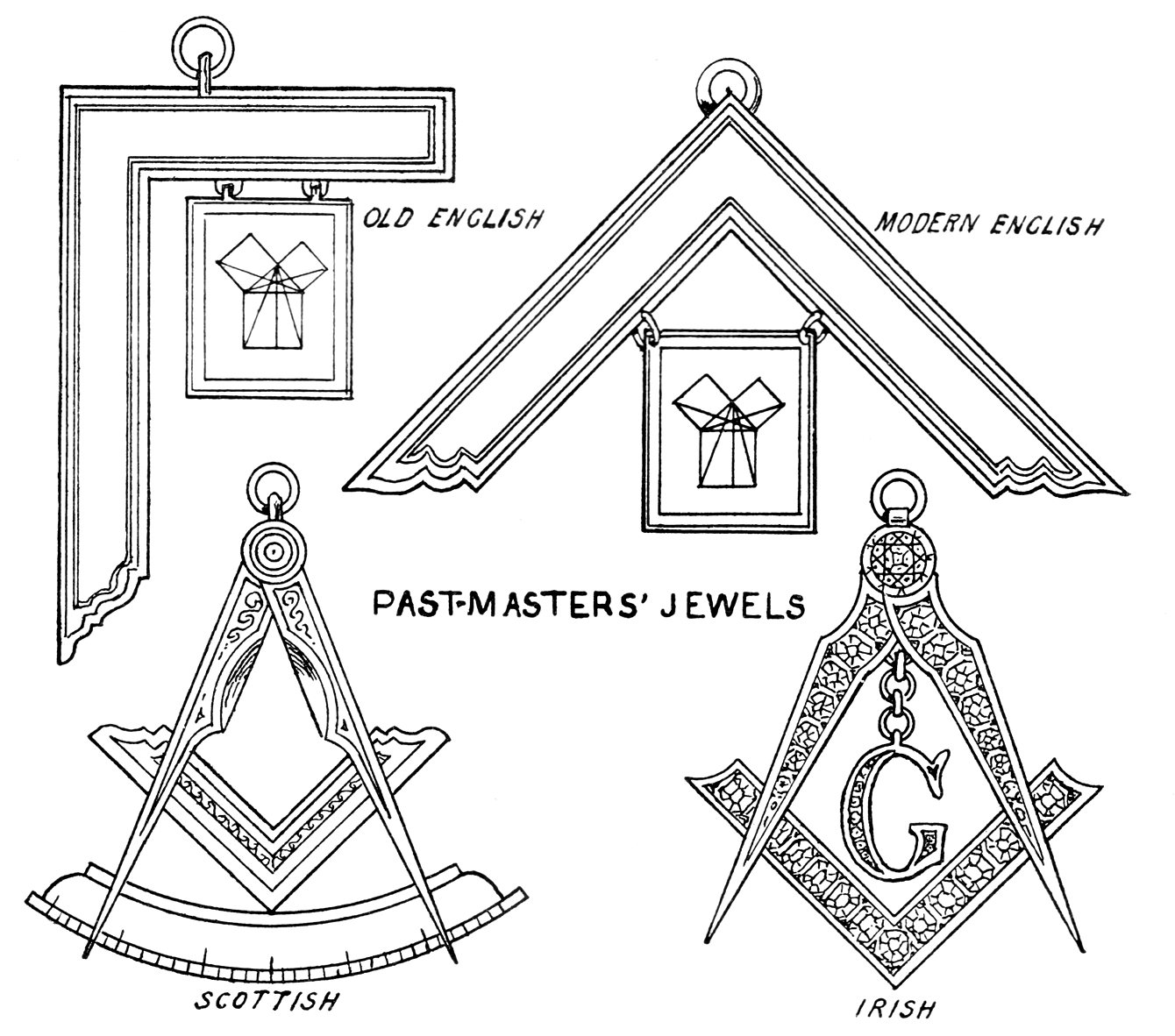
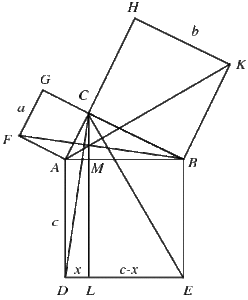
In Gematria, “Eheieh asher Eheieh” enumerates to 5 4 3. If you have been paying attention to the regalia your Past Master wears, you will have noticed that the jewel is a representation of Euclid’s 47th proposition , otherwise known as Pythagoras’s Theorem whose postulation is proved by the ratio 3-4-5 or 5-4-3. ”I am what I am” !
Have you noticed the letter “G” that in some Lodges hangs from the ceiling centre and others is depicted in the East above the master’s pedestal ?
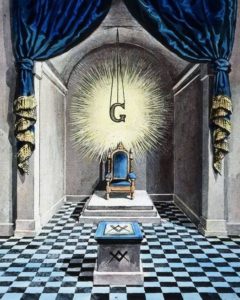
AllegorThe letter “G” can signify Geometry, which is the root and foundation of all Sciences. “G” has also a symbolic meaning of God as synonymous with Geometry and it may also stand for the “Great” or” Grand” Architect of the Universe . In the words of our Brother W.L. Wilmhurst [3]:
“When the Lodge is opened , the mind and heart of every Brother composing it, should be deemed opened to the “G” and all that it implies and to the desire that those implications may eventually realise themselves by becoming facts (…) and when the Lodge is closed, the memory of the symbol “G” and its implications should be the principal things to be retained and pondered over in the repository of the heart”
— *** —
It is therefore entirely appropriate that the Masonic “Charge after the Initiation” delivered to the EAF, should state : “As a Freemason I would first recommend to your most serious contemplation , the volume of the Sacred Law”. It is only by contemplating the scripture with perseverance, that one will find and recognise symbolism. It cannot be attained by simply memorising and repeating to an esponential degree , the words of the Masonic ritual.
But sadly there is a large number of Freemasons who never actually consider the presence of allegories in the ritual and in the VSL.
On the Continent of Europe the Entered Apprentice has to wait a number of years after his initiation before being passed to the second degree. And during that time he is expected to do Masonic research and write papers to be presented to his lodge and in the Lodge. It is only when his Brethren are convinced that he has attained a relevant and sufficient Masonic knowledge that he is allowed progression to the next degree.
If you were to ask an Entered Apprentice Freemason here to make research on symbolism, he would probably not even know where to start. By contrast , in France and in Italy there has always been an intellectual tradition. Philosophy is taught in secondary school there, so there is a tendency to recruit from people who have such kind of interest and education. And if you go to France, you will discover that every bookshop – whether in Paris or in any provincial town – has shelves stacked with books and magazines on Freemasonry written by Freemasons and covering the subject of Masonic symbolism.
The philosopher Thomas Carlyle once wrote: “In a symbol there is concealment and yet revelation, silence and speech acting together. (…) infinite blending itself with the finite, to stand visible and, as it were, attainable there.”
So mote it be.
The author forbids any reproduction or publication of this article, in full or in part, without his explicit authorisation.
[1] According to the Kabbalah there are ten creative forces – the Holy Sephiroths – that intervene between God and our world. Through these powers God created and rules the universe, and it is by influencing them that humans cause God to send to Earth forces of compassion or severe judgment .
[2] The burning bush is an object described by the Book of Exodus as being located on Mount Horeb. According to the narrative, the bush was on fire, but was not consumed by the flames, hence the name. In the biblical narrative, the burning bush is the location at which Moses was appointed by Yahweh (God) to lead the Israelites out of Egypt and into Canaan.
[3] In the words of our distinguished Brother and author Robert Lomas , William Leslie WIlmhurst was one of the greatest thinkers about Freemasonry in the last century. Born in Chichester in 1867, he died in London in 1929. He wrote the book “The meaning f Freemasonry” and within it he tried to explain the inexplicable.
Sources D.M.Study Circle 2016 transactions “The Holy Acronym and Gematria” by Bro. R. Johnson (from “The Midnight Freemasons” blog) Wikipedia The Blog universalfreemasonry
- MUSIC AND THE CRAFT – LUIGI BORGHI , A FREEMASON OF THE NINE MUSES LODGE - October 31, 2022
- SPILSBURY – THE FREEMASON FATHER OF FORENSIC SCIENCE - April 18, 2022
- THE MASONIC GLOVES - March 21, 2022

